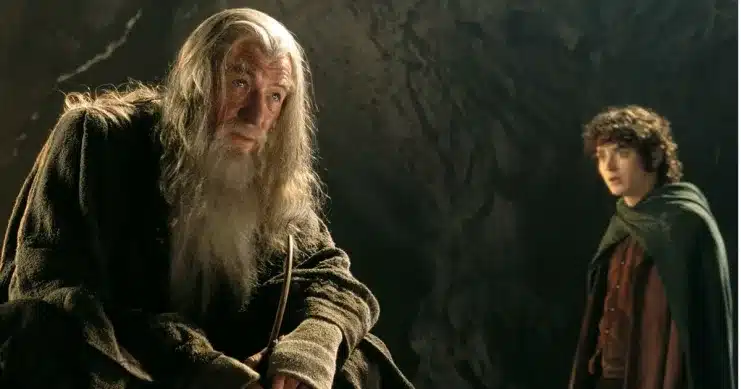
All versions of The Lord of the Rings not supported by Tolkien
JRR Tolkien’s vast ‘Lord of the Rings’ universe filled with magic, mythology and unforgettable characters has captivated millions over the years. However, what many fans are unaware of is the tumultuous relationship between Tolkien and his adaptation of his masterpiece. Although his film adaptations, particularly Peter Jackson’s trilogy, have received acclaim from audiences and critics alike, Tolkien placed great value on his narrative interpretations.

According to Tolkien, an irreparable work?
In the year In 1958, Forrest J. Ackerman obtained Tolkien’s permission to attempt an adaptation. But it was a series of creative disagreements that later led Tolkien to call the intended script treatment the “murder” of the story. In a letter published years later in the “Letters of JRR Tolkien”, the author held nothing back, criticizing everything from inappropriate magic to a confusing conclusion. This document gives us a unique insight into Tolkien’s expectations and ideas about how his work should be edited.
Massacre of the original material and a more faithful presentation
Morton Grady Zimmerman’s plot not only reinterprets key elements, but deviates significantly from the content of Tolkien’s work. The changes, which included beaked and feathered characters such as hobbits and orcs, were not well received by the author. Additionally, inaccurate descriptions of elven cities such as Rivendell and Lorien, along with extreme interpretations of characters such as Tom Bombadil, show a misunderstanding of Tolkien’s tone and style.
Comparing this to Peter Jackson’s trilogy, one might wonder: would Tolkien have approved of these films? Although Jackson has made changes, Tolkien’s story and the essence of his world seem more respected. Following Tolkien’s comments on the letter, characters such as Tom Bombadil were omitted, and Saruman’s death was treated in extended editions in a manner consistent with the book.


The heart of Middle Earth
At the center of Tolkien’s epic is Frodo Baggins, a character who embodies defiance, loyalty and courage in the face of unimaginable adversity. In film adaptations, especially the Jackson trilogy, Frodo is portrayed with a depth that captures the essence of the literary character. Elijah Wood brings to life the Hobbit who carries the fate of Middle-earth on his shoulders in his passionate and subtle performance. This portrayal resonated deeply with fans, cementing Frodo as one of the most iconic and beloved characters in the saga.
On the other hand, it is clear that some creative liberties were taken when comparing Tolkien’s vision to the films. However, these did not diminish Frodo’s importance in the plot. Being faithful to Frodo’s narrative arc, while preserving his essence and internal conflicts, shows a respect for the source material that Tolkien might have appreciated. Through Frodo, both the book and the film convey a message of hope and perseverance that continues to inspire new generations.
Do the films capture Tolkien’s spirit?
However, some of Tolkien’s concerns also appear in Jackson’s films, such as The Hobbits and Aragorn’s Night with Brae and Aragorn’s use of weapons. These details, however small, may not have pleased the author.


Ultimately, while it remains to be seen whether Tolkien will receive modern film adaptations, his legacy continues to inspire generations of fans and filmmakers. Although Zimmerman’s version was never made, and Tolkien never saw his work on the big screen, Jackson’s trilogy managed to bring ‘The Lord of the Ring’ to a global audience, bringing the spirit of Middle-earth to life.